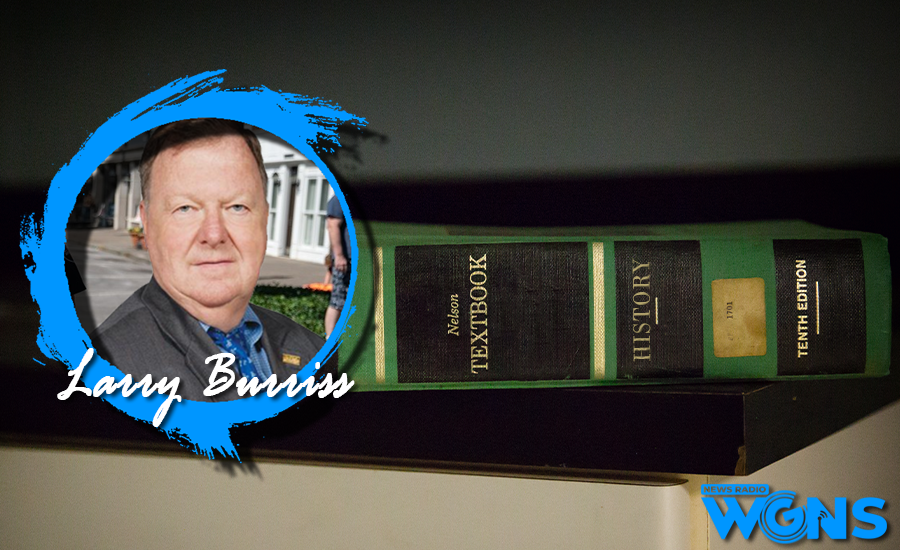Commentary: One set of facts are presented and two different people interpret the facts in completely different ways – in other words, each person has their own interpretation of the same set of facts, leading way to two different stories. With more on this topic, here’s MTSU Professor Larry Burriss…
Verbatim: How many times lately have we heard two different interpretations of the same set of facts? One side says the set of facts means this, but the other side says the same set of facts means that.
And I’m beginning to think all of our technological marvels, and problems, are nothing new, and perhaps were even presaged maybe hundreds of years ago.
Look back at the Edgar Allan Poe story, “The Masque of the Red Death,” written in 1845.
The world has apparently been stricken with a deadly virus, and the main character goes into isolation with a group of friends. They are even wearing masks.
A stranger shows up at the fortress wearing what looks suspiciously like a modern-day hazmat suit.
When he is attacked by the other guests it turns out there is nothing under the outer layer. It’s all fake. Until the Red Death kills everyone.
Or try this: I was reading a book recently about on-line romance. Everything, well, almost everything, was there. Two people communicating electronically; cryptic abbreviations understandable only by the initiated; questions about the real identity of the person at the other end of the line.
The name of the book is “Wired Love,” and the date: 1880. That’s right, a book written in 1880 almost perfectly describes current on-line dating. But the book isn’t science fiction, it’s the story of people using the telegraph to conduct a private, long-distance romance the same way we use text messages and e-mails.
And just the other day I was listening to an old-time science fiction radio program, about a world at war for untold years. At the end a military unit receives a message the war is over because their side has developed a virus that kills all of the enemy by destroying their protoplasm. Then someone figures out, wait a minute, if it destroys all protoplasm, then it will destroy us! And it does.
Now, I am absolutely not into predictions and conspiracy theories, especially when they are what we call “ex post facto,” that is, after the fact.
But I bet there isn’t a book, song, or movie out there someone couldn’t prove is making a prediction.
So, in words often attributed to Yogi Berra, “The future isn’t what it used to be.” - I’m Larry Burris
About Dr. Burriss - Larry Burriss, professor of journalism, teaches introductory and media law courses. At the graduate level he teaches quantitative research methods and media law. He holds degrees from The Ohio State University (B.A. in broadcast journalism, M.A. in journalism), the University of Oklahoma (M.A. in human relations), Ohio University (Ph.D. in journalism) and Concord Law School (J.D.). He has worked in print and broadcast news and public relations, and has published extensively in both academic and popular publications. He has won first place in the Tennessee Associated Press Radio Contest nine times. Dr. Burriss' publications and presentations include studies of presidential press conferences, NASA photography, radio news, legal issues related to adolescent use of social networking sites, legal research, and Middle Earth.
Dr. Burriss has served as director of the School of Journalism, dean of the College of Mass Communication and president of the MTSU Faculty Senate. He was appointed by Gov. Phil Bredesen to serve on the Tennessee Board of Regents. He was a lieutenant colonel in the U.S. Air Force and served on active duty in Mali, Somalia, Bosnia, Central America, Europe and the Pentagon.
Additional WGNS Headlines:
- UPDATE: 2020 Murder Investigation Headed to Court in April
- Commentary: Being Masculine in Today’s Times
- Great Granddaughter of the 28th Tennessee Governor Passes Away in Murfreesboro
- 12-Year-Old from Murfreesboro, TN in Need of a Kidney
- New Indoor Soccer Facility in Murfreesboro to Open this Spring
- Smyrna High School Senior to Receive UT Athletic Scholarship, Despite Injuries







